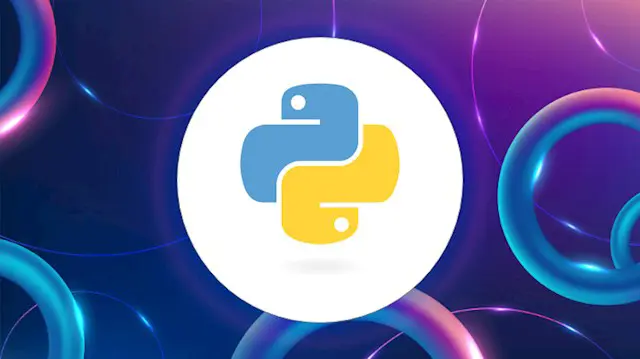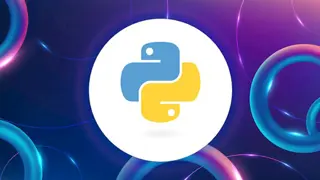
Python Projects: Python & Data Science with Python Projects
Python Marathon and Data Science with NumPy, Pandas, Matplotlib, Machine Learning, Deep Learning, and Python Project
Oak Academy
Summary
- Reed courses certificate of completion - Free
Add to basket or enquire
Overview
Hello dear friends,
Welcome to Python Projects: Python & Data Science with Python Projects course.
Python Marathon & Data Science with NumPy, Pandas, Matplotlib, Machine Learning, Deep Learning, and Python Project
In this course, We will open the door of the Data Science world and try to move deeper. We will step by step to learn the fundamentals of Python and its beautiful libraries such as Numpy, Pandas, and Matplotlib step by step. Throughout the course, we will do a variety of exercises to reinforce what we have learned. Data science, data science from scratch, pandas, python data science, numpy, programming, python and data science from scratch, python for data science, data science python, matplotlib, python pandas, python exercises, data science Project, pandas exercises, python pandas numpy, data literacy, numpy pandas, pandas python, python programming for data science
In this course you will learn;
How to use Anaconda, PyCharm, Jupyter notebook and Google Colab,
Fundamentals of Python such as
-
Datatypes in Python,
-
Lots of datatype operators, methods and how to use them,
-
Conditional concept, if and elif statements
-
Logic of Loops and control statements
-
Functions and how to use them
-
How to use modules and create your own modules
Data science and Data literacy concepts
Fundamentals of Numpy for Data manipulation such as
-
Numpy arrays and their features
-
How to do indexing and slicing on Arrays
Lots of stuff about Pandas for data manipulation such as
-
Pandas series and their features
-
Dataframes and their features
-
Hierarchical indexing concept and theory
-
Groupby operations
-
Logic of data munging
-
How to deal effectively with missing data effectively
-
Combining the data frames
-
How to work with Dataset files
In the ad also you will learn fundamental things about the Matplotlib library such as
-
Pyplot, pylab and matplotlb concept
-
What Figure, Subplot, and Axes are
-
How to do figure and plot customization
Finally, we run a marathon. We got lots of examples to improve your Python skills with different difficulty levels.
Video and Audio Production Quality
All our content are created/produced as high-quality video/audio to provide you the best learning experience.
You will be,
-
Seeing clearly
-
Hearing clearly
-
Moving through the course without distractions
You'll also get:
-
Lifetime Access to The Course
-
Fast & Friendly Support in the Q&A section
Dive in now!
Python Projects: Python & Data Science with Python Projects
We offer full support, answering any questions.
See you in the course!
Certificates
Reed courses certificate of completion
Digital certificate - Included
Will be downloadable when all lectures have been completed
Curriculum
Course media
Description
Hello dear friends,
Welcome to Python Projects: Python & Data Science with Python Projects course.
Python Marathon & Data Science with NumPy, Pandas, Matplotlib, Machine Learning, Deep Learning, and Python Project
In this course, We will open the door of the Data Science world and try to move deeper. We will step by step to learn the fundamentals of Python and its beautiful libraries such as Numpy, Pandas, and Matplotlib step by step. Throughout the course, we will do a variety of exercises to reinforce what we have learned. Data science, data science from scratch, pandas, python data science, numpy, programming, python and data science from scratch, python for data science, data science python, matplotlib, python pandas, python exercises, data science Project, pandas exercises, python pandas numpy, data literacy, numpy pandas, pandas python, python programming for data science
In this course you will learn;
How to use Anaconda, PyCharm, Jupyter notebook and Google Colab,
Fundamentals of Python such as
-
Datatypes in Python,
-
Lots of datatype operators, methods and how to use them,
-
Conditional concept, if and elif statements
-
Logic of Loops and control statements
-
Functions and how to use them
-
How to use modules and create your own modules
Data science and Data literacy concepts
Fundamentals of Numpy for Data manipulation such as
-
Numpy arrays and their features
-
How to do indexing and slicing on Arrays
Lots of stuff about Pandas for data manipulation such as
-
Pandas series and their features
-
Dataframes and their features
-
Hierarchical indexing concept and theory
-
Groupby operations
-
Logic of data munging
-
How to deal effectively with missing data effectively
-
Combining the data frames
-
How to work with Dataset files
In the ad also you will learn fundamental things about the Matplotlib library such as
-
Pyplot, pylab and matplotlb concept
-
What Figure, Subplot, and Axes are
-
How to do figure and plot customization
Finally, we run a marathon. We got lots of examples to improve your Python skills with different difficulty levels.
Video and Audio Production Quality
All our content are created/produced as high-quality video/audio to provide you the best learning experience.
You will be,
-
Seeing clearly
-
Hearing clearly
-
Moving through the course without distractions
You'll also get:
-
Lifetime Access to The Course
-
Fast & Friendly Support in the Q&A section
Dive in now!
Python Projects: Python & Data Science with Python Projects
We offer full support, answering any questions.
See you in the course!
Who is this course for?
- Anyone who has programming experience and wants to enter the python world. In this world your journey never ends.
- You can develop yourself at data science or Machine learning and even developing an application.
- Statisticians and mathematicians who want to learn python for data science.
- Tech geeks who curious data science.
- Data analysts who want to data science and data visualization.
- If you are one of these, you are in the right place. But please don't forget. You must know a little bit of coding and scripting.
- Software developer who wants to learn "Machine Learning"
- Students Interested in Beginning Data Science Applications in Python Environment
Requirements
- You'll need a desktop computer (Windows, Mac) capable of running Anaconda 3 or newer. We will show you how to install the necessary free software.
- A little bit of coding experience.
- At least high school level math skills will be required.
- Desire to learn machine learning python with numpy, data science, python, pandas
- Desire to master on python, machine learning a-z, deep learning a-z
- Learn to create Machine Learning and Deep Algorithms in Python Code templates included.
- Desire to learn data science with python
- Desire to learn python data science, numpy pandas
Questions and answers
Currently there are no Q&As for this course. Be the first to ask a question.
Reviews
Currently there are no reviews for this course. Be the first to leave a review.
Legal information
This course is advertised on reed.co.uk by the Course Provider, whose terms and conditions apply. Purchases are made directly from the Course Provider, and as such, content and materials are supplied by the Course Provider directly. Reed is acting as agent and not reseller in relation to this course. Reed's only responsibility is to facilitate your payment for the course. It is your responsibility to review and agree to the Course Provider's terms and conditions and satisfy yourself as to the suitability of the course you intend to purchase. Reed will not have any responsibility for the content of the course and/or associated materials.


